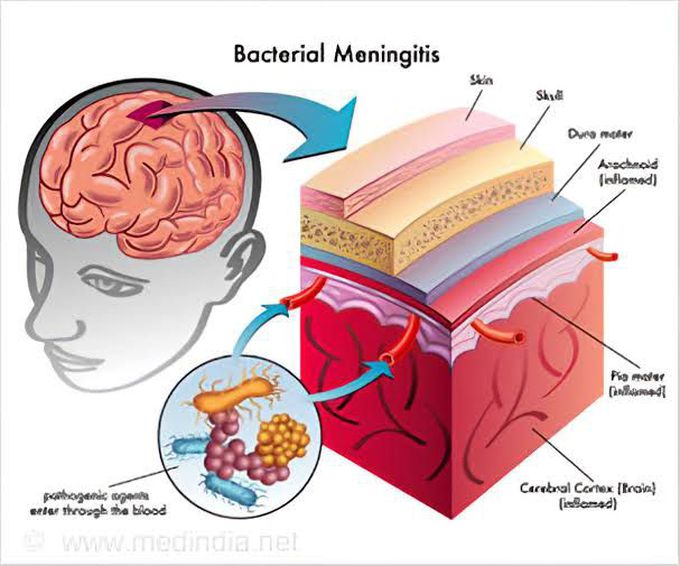

Vijay Kumarover 2 years ago

Pyogenic Meningitis
Meningitis is defined as inflammation of the membranes surrounding the brain and spinal cord including the dura, arachnoid and pia mater. Bacterial meningitis occurs at all age but is comman in infancy. 0-2 month of age causative agent is E.coli. 2 months- 2 years agent is Hemophilus influenza type b. 2 year to 21 year causative agent is neisseria Meningitis and streptococcus pneumoniae.
Other commentsSign in to post comments. You don't have an account? Sign up now!
Related posts

